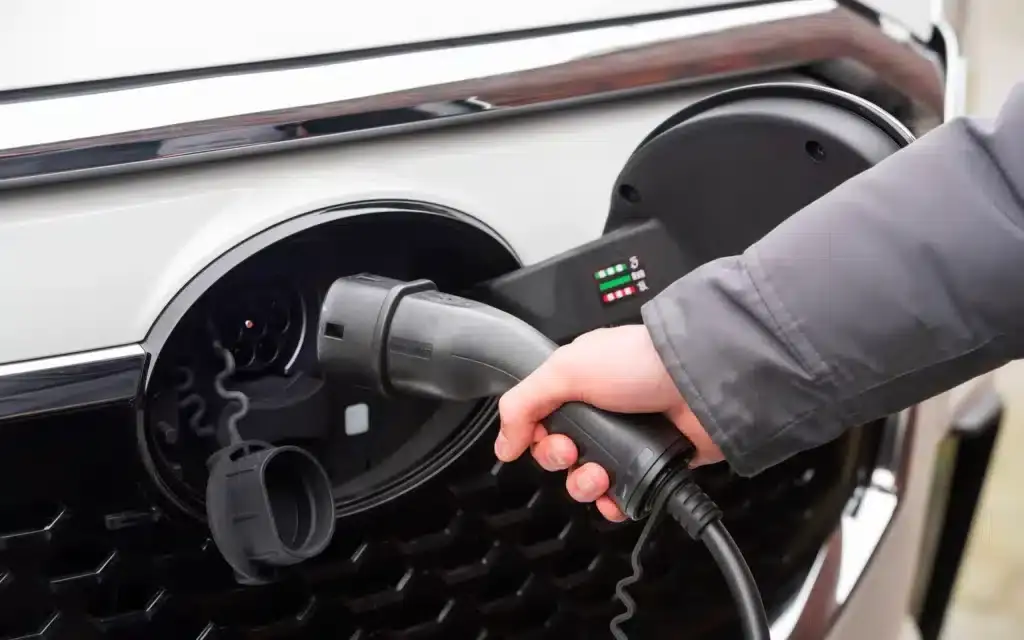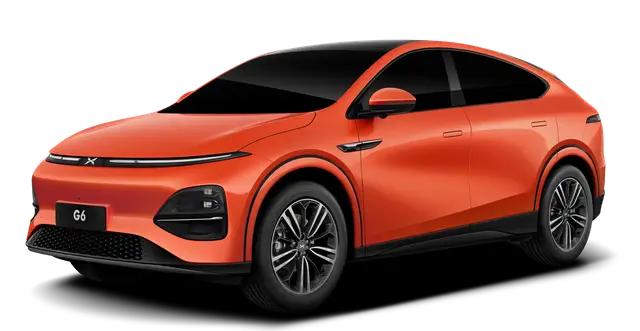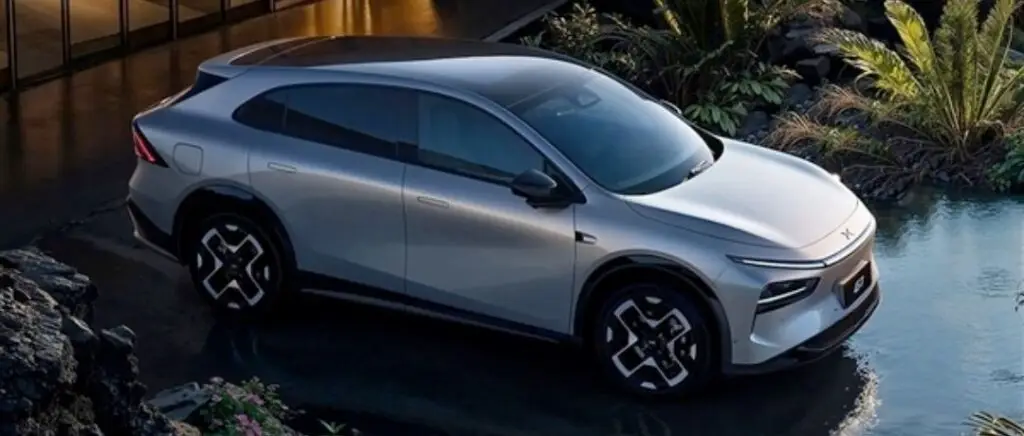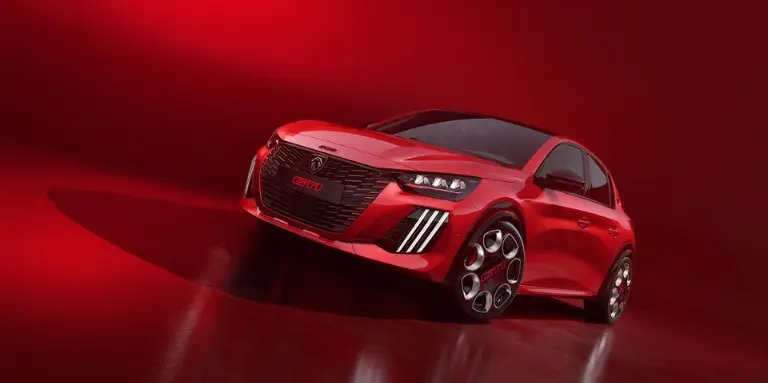What impact does daily recharging have on the battery?
The daily recharging of electric vehicle batteries raises many questions about its impact on battery life and performance.
Contrary to popular belief, frequent recharging is generally not harmful to the battery, provided certain good practices are followed. The charging time of a car battery varies according to its capacity and the type of terminal used, from a few hours on a domestic socket to less than an hour on a fast terminal. The number of kilometers covered before recharging depends on the vehicle'srange, but it is recommended to maintain a charge level between 20% and 80% to to preserve the battery.
Bien qu’il soit possible de recharger une batterie complètement vide, il est préférable d’éviter cette situation pour ne pas réduire sa longévité. Pour recharger la batterie de sa voiture, plusieurs options s’offrent aux conducteurs : bornes publiques, chargeurs domestiques ou même la recharge par induction pour certains modèles.
By adopting good recharging habits, such as favouring slow charging and avoiding systematic full charging, electric vehicle owners can optimize the life of their batteries while taking full advantage of their range on a daily basis.
Effects of microrecharges on battery life
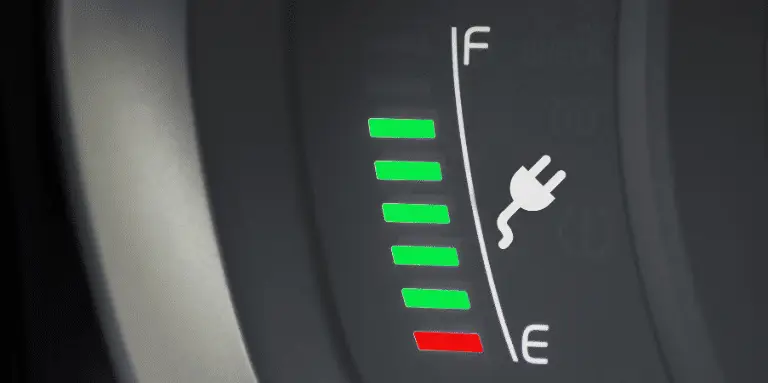
Micro-charging, or frequent short-term recharging, is a hotly debated topic in the world of electric vehicles. Contrary to popular belief, these daily recharges generally have no significant negative impact on battery life. In fact, they may even have certain advantages:
- Optimum charge maintenance: micro-recharges keep the battery within an ideal charge range (generally between 20% and 80%), which is beneficial for its longevity.
- Reduced stress on the battery: unlike deep-discharge cycles followed by full recharges, micro-recharges subject the battery to less thermal and electrical stress.
- Flexibility of use: this practice offers greater freedom of use of the vehicle, reducing anxiety linked to autonomy.
However, it's important to note that the optimum recharging frequency depends on a number of factors, including battery type, vehicle model and driving habits.
To maximize the life of your battery, we recommend :
- Avoid frequent 100% full loads
- Limit exposure to extreme temperatures when recharging
- Use chargers adapted to your vehicle
By following these tips, you can optimize the charging time of your car battery and maintain its performance over the long term, whether you opt for daily or less frequent recharging.
Impact of rapid charging on battery health
Fast charging, while convenient, can have a significant impact on the long-term health of your electric vehicle's battery. Here's what you need to know:
- Thermal stress: rapid charging generates more heat, which can accelerate the degradation of battery cells. Frequent use can reduce overall battery life.
- Charging cycles: each rapid charge counts as a complete cycle, even if you only partially recharge. This can deplete your battery's total number of cycles more quickly.
- Storage capacity: over the long term, excessive use of rapid charging can reduce your battery's storage capacity, thus reducing your vehicle's range.
- Balance between convenience and longevity: it's important to strike a balance between the convenience of fast charging and preserving the health of your battery. Use them sparingly, especially on long journeys.
To optimize the life of your battery, prefer slow charging at home whenever possible. Reserve fast charging for situations where it's really necessary, such as long journeys where car battery recharging time is limited. By adopting this approach, you'll be able to take full advantage of your electric vehicle while preserving its battery over the long term.
Consequences of regular full recharges
Regular full recharges of your electric vehicle can have a significant impact on the life and performance of your battery. While the question "how do I recharge my car battery?" is a common one, it's important to understand that frequent 0-100% charge cycles aren't always the best approach. Here's why:
- Energy efficiency: the charging time of a car's battery is generally longer for the last few percentages, which can lead to higher and less efficient energy consumption.
- Reduced flexibility: constantly maintaining a full charge can limit your ability to take advantage of off-peak electricity rates or fast-charging options in case of unforeseen need.
It's perfectly possible to recharge an empty battery, but it's best to adopt a more balanced approach. Experts generally recommend keeping the charge between 20% and 80% to optimize battery life. This practice not only preserves the health of your battery, but also balances your daily driving needs with efficient recharge management.
Should I adapt my recharging frequency to my driving habits?
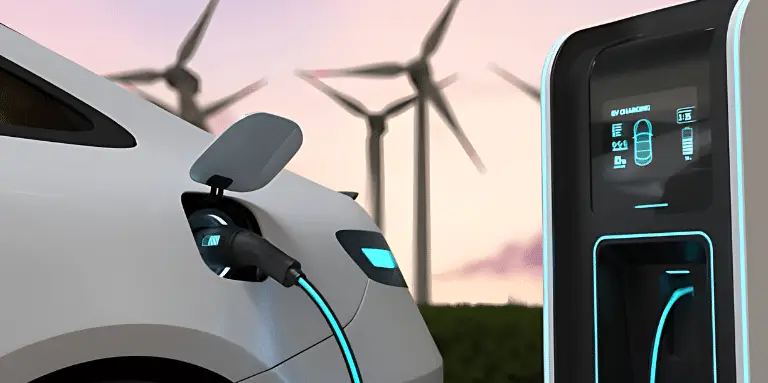
Optimal management of your electric vehicle's recharging largely depends on your driving habits. It's essential to adapt your recharging strategy to maximize the efficiency and longevity of your battery.
First, consider your daily mileage. If you regularly cover long distances, a daily recharge may be necessary. On the other hand, for drivers with shorter journeys, less frequent recharging may suffice. The aim is to maintain a comfortable charge level without unnecessarily overcharging the battery.
The charging time of your car battery is a crucial factor to consider. The fast-charging may be convenient for long journeys, but excessive use can affect battery life. For daily use, opt for slow, regular recharging at home.
It's essential to understand that the distance required to recharge a battery depends on your vehicle's model and battery capacity. Take the time to find out about your car's range, so you can better organize your recharging.
If the battery is completely discharged, don't worry: it is possible to recharge an empty battery. However, this situation should be avoided, as it can shorten the life of your battery. Plan your recharges so as to maintain a charge level between 20% and 80% as mentioned above, to ensure optimum battery health.
Adapting your recharging frequency to your driving habits is crucial to optimizing the performance and longevity of your electric vehicle. A well thought-out approach to recharging your battery will enable you to take full advantage of the benefits of electric mobility, while preserving your investment over the long term.
Analysis of daily commuting needs
To determine the optimum charging frequency for your electric vehicle, it's essential to assess your daily driving habits. A thorough analysis of your mobility needs will enable you to adopt an effective recharging strategy that's tailored to your lifestyle.
Start by calculating the average distance you drive each day. If your daily journey represents only a fraction of your vehicle's total range, a daily recharge may not be necessary. On the other hand, for those whose daily journeys are close to the autonomy limit, more frequent recharging will be necessary.
Also consider the variability of your journeys. If your journeys are relatively constant, you can establish a predictable recharging routine. However, if your needs fluctuate considerably from day to day, a more flexible approach will be in order.
Don't forget to consider external factors that can influence your vehicle's range, such as weather conditions or the type of road you drive on. These factors can affect energy consumption and, consequently, your recharging needs.
By adjusting your recharging frequency to your actual driving habits, you not only optimize the use of your electric vehicle, but also help preserve the long-term health of your battery.
Influence of battery autonomy on recharging frequency
Battery autonomy plays a crucial role in determining the optimum recharging frequency for your electric vehicle. It's directly linked to your driving habits and daily travel needs. A long-range battery gives you greater flexibility, while a shorter range may require more frequent recharging.
To effectively adapt your recharging frequency, consider the following points:
- Evaluate your average daily mileage and compare it with the range of your electric vehicle.
- Take into account any exceptional journeys or long trips planned.
- Take into account seasonal variations that can affect battery life.
As a general rule, if your range is well in excess of your daily needs, a recharge every two or three days may be sufficient. On the other hand, if your range barely covers your daily travel needs, a daily recharge will be more appropriate to avoid any range anxiety.
Remember, the aim is to strike a balance between practicality, energy efficiency and preserving the life of your battery.
Optimization of charging costs according to off-peak times
Adapting your charging frequency to your driving habits can be a wise move, especially when it comes to optimizing costs. Daily charging during off-peak hours can be a winning strategy for many drivers.
Here's why:
- Electricity suppliers often offer reduced rates during low consumption hours, usually at night.
- By synchronizing your refills with these time slots, you can make substantial savings over the long term.
- What's more, this practice has the advantage of keeping your battery in an optimal charge range, thus contributing to its longevity.
However, it's important to note that this approach requires some planning. Make sure you know your supplier's off-peak times and program your charging station accordingly. Some electric vehicles, such as Tesla brand even offer smart charging features, enabling you to automate this process and take full advantage of advantageous tariffs.
By adopting this habit, not only are you optimizing your costs, but you're also helping to balance the power grid by encouraging consumption during periods of lower demand. It's a doubly beneficial approach, both for your wallet and for the environment.
Which charging station should you choose for everyday use?
For daily charging of your electric vehicle, the choice of charging station is crucial. A domestic wallbox is generally the ideal solution, offering a perfect balance between power, convenience and cost. Choose between 7.4 kW and 11 kW, enough to fully recharge most vehicles overnight. These terminals are not only faster than standard household sockets, but also safer and more energy-efficient.
Also consider an intelligent charging station, capable of communicating with your vehicle and your electrical network. These models allow you to schedule your recharges during off-peak hours, optimizing your electricity costs. Some even offer consumption tracking and remote management via a smartphone app, giving you total control over your charging sessions.
N’oubliez pas de vérifier la compatibilité de la borne avec votre véhicule et de faire appel à un professionnel pour l’installation. Un électricien qualifié IRVE pourra évaluer votre installation électrique et effectuer les modifications nécessaires pour garantir une utilisation sûre et efficace de votre borne de recharge au quotidien.
Use the TCO simulator to calculate your car's total cost of ownership and compare it with its internal combustion equivalent.
Comparison between wallbox and public terminal
When choosing a charging station for everyday use, it's essential to compare the advantages and disadvantages of home wallboxes and public charging stations. Here's a comparative analysis to help you make an informed decision:
Wallboxes generally offer a more practical and economical solution for daily recharging. Installed at home, they allow you to charge your vehicle overnight, taking advantage of off-peak electricity rates when electricity is cheapest.. What's more, they guarantee constant availability and the right charging power for your needs.
On the other hand, public charging stations offer the advantage of flexibility, which is particularly useful when traveling or for people who don't have a private parking space. However, they can be more expensive to run, and availability is not always guaranteed. The final decision will depend on your personal situation, including where you live and your travel habits.
Charging station selection criteria
Choosing the right charging station for everyday use is crucial to optimizing your electric vehicle ownership experience. Several factors come into play in this important decision.
First, consider the charging power: a 7 kW to 22 kW charging point is generally sufficient for everyday domestic use, offering a good balance between charging speed and installation cost. Next, assess compatibility with your vehicle and existing electrical installation. Connectivity is another aspect not to be overlooked: a smart charging station, capable of connecting to your Wi-Fi network, will enable you to manage and program your charging sessions remotely.
Finally, opt for a sturdy, weather-resistant model if your bollard is to be installed outdoors.
Don't forget to take into account the manufacturer's after-sales service and warranty, which can make all the difference in the event of a problem. By carefully weighing up these criteria, you'll be able to select a charging station that's perfectly suited to your everyday needs.
How to optimize your electric car battery?
To maximize the life and performance of your electric vehicle's battery, it's essential to adopt good practices. Here are a few tried-and-tested tips for optimizing your battery's use:
- Maintain a charge level between 20% and 80%. This range is ideal for long-term battery health. Avoid frequent full charges and deep discharges, which can accelerate battery degradation.
- Use slow charging whenever possible. Fast chargers are convenient for long journeys, but regular use can affect battery life. Opt for a slow charge at home for optimum maintenance.
- Beware of extreme temperatures. Lithium-ion batteries are sensitive to intense heat and cold. Wherever possible, park your vehicle away from the elements and use battery preconditioning in winter.
- Drive smoothly and think ahead. Aggressive driving with hard acceleration and braking puts extra strain on the battery. Smooth driving and regenerative braking optimize range and preserve the battery.
By following these recommendations, you'll help maintain your battery's performance over the long term, ensuring an optimal, long-lasting electric driving experience.
Adopt eco-responsible driving to extend your autonomy
Eco-responsible driving is an effective and often overlooked way of optimizing the range of your electric vehicle. By slightly modifying your driving habits, you can significantly increase the distance covered between two recharges. Here are a few key tips:
- Anticipate traffic and avoid sudden acceleration and braking. Smooth, progressive driving reduces energy consumption.
- Make judicious use of the regenerative braking mode. This function, found on most electric vehicles, partially recharges the battery during deceleration.
- Maintain a constant speed, especially on freeways. Using cruise control can help optimize your fuel consumption. Limit the use of air conditioning and heating, which consume a lot of energy. Use natural ventilation whenever possible, or pre-condition your vehicle while it's still plugged in.
By making these practices part of your daily routine, you'll not only improve your vehicle's range, you'll also help preserve your battery's lifespan over the long term. Eco-responsible driving is therefore a wise investment for any electric car owner wishing to optimize performance.
Adopting this habit may seem restrictive at first, but it soon becomes natural. What's more, most modern electric vehicles offer customizable charging parameters, enabling you to easily define these limits. By adhering to this optimal charging range, you help maintain your battery's performance over the long term, guaranteeing a stable range and a potentially higher resale value for your electric vehicle.
Use renewable energy sources for recharging
Optimizing your electric car's battery also involves choosing the energy source used for recharging. Opting for renewable energies is not only good for the environment, but can also contribute to the longevity of your battery.
Here are a few options to consider:
- Install solar panels at home for green, economical recharging over the long term.
- Choose an electricity supplier offering 100% renewable energy.
- Choose public charging stations powered by green energy.
By adopting these practices, you're not only helping to reduce your carbon footprint, you're also ensuring your battery has a quality supply of energy. This can translate into better performance and longer battery life, optimizing your investment in electric mobility.
Summary table
| Thème | Points clés |
|---|---|
| Recharge quotidienne : bonne ou mauvaise idée ? | Dépend des habitudes de conduite et de la gestion de la batterie. |
| Impacts sur la batterie | La recharge fréquente n'est pas néfaste si certaines bonnes pratiques sont respectées (charge entre 20% et 80%). |
| Effets des micro-recharges | Peu d’impact négatif ; elles aident à maintenir une charge optimale et réduisent le stress thermique. |
| Impact des charges rapides | Génèrent du stress thermique et accélèrent la dégradation de la batterie si utilisées trop fréquemment. |
| Consequences of regular full recharges | Peuvent réduire l’efficacité énergétique et limiter la flexibilité d’utilisation du véhicule. |
| Adapter la fréquence de recharge | Dépend du kilométrage quotidien et de l'autonomie du véhicule. Une recharge quotidienne n’est pas toujours nécessaire. |
| Analyse des besoins selon les trajets | Un trajet court peut ne pas nécessiter de recharge quotidienne ; les longs trajets peuvent exiger une recharge plus fréquente. |
| Autonomie et fréquence de recharge | Une grande autonomie permet d’espacer les recharges ; une autonomie limitée peut nécessiter des recharges quotidiennes. |
| Optimisation des coûts de recharge | Recharger pendant les heures creuses permet de réduire les coûts d’électricité. |
| Choisir une borne de recharge | Une wallbox domestique est recommandée pour une recharge quotidienne ; les bornes publiques offrent plus de flexibilité. |
| Critères de sélection d’une borne | Puissance, compatibilité, connectivité et résistance aux intempéries. |
| Optimiser la batterie | Charge entre 20%-80%, privilégier la charge lente, éviter températures extrêmes et conduite agressive. |
| Conduite éco-responsable | Anticiper le trafic, utiliser le freinage régénératif, limiter chauffage/climatisation pour optimiser l’autonomie. |
| Énergies renouvelables pour la recharge | Utiliser des panneaux solaires ou des fournisseurs d’électricité verte pour réduire son empreinte carbone. |
